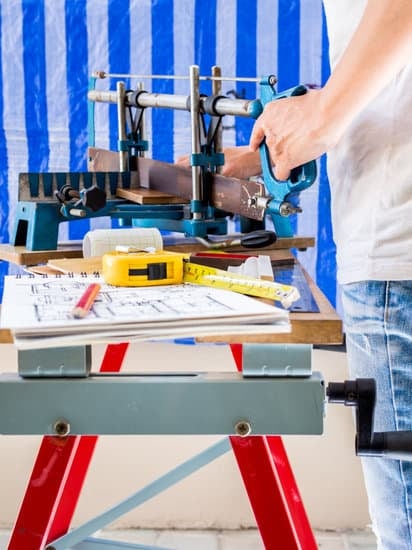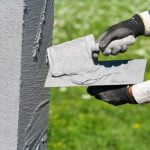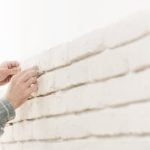Are there any government grants for home improvements? Many homeowners often find themselves in need of financial assistance to make necessary improvements to their homes. In this article, we will explore the possibility of government grants for home improvements and provide a comprehensive guide on understanding the need for home improvements, types of government grants available, eligibility requirements, the application process, alternative funding options, real-life case studies, and tips for maximizing the chances of receiving government grants.
For many homeowners, making essential upgrades or repairs to their homes can be financially burdensome. Whether it’s repairing a leaky roof, upgrading to more energy-efficient appliances, or making structural changes to accommodate aging in place, the need for financial help is clear. Government grants for home improvements can provide much-needed relief and support for those looking to enhance their living spaces.
In this article, we will delve into the various types of government grants available for home improvements and explore the eligibility requirements set by different programs. Additionally, we will provide a step-by-step guide on how to apply for these grants and offer alternative funding options for those who may not qualify for government assistance.
Through real-life case studies and valuable tips, we aim to provide useful insights into maximizing the chances of receiving government grants for home improvements.
Understanding the Need for Home Improvements
Many homeowners find themselves in need of home improvements for various reasons. These can include necessary repairs due to wear and tear, outdated appliances or systems, or the desire to increase the value of their property. Unfortunately, the costs associated with these improvements can be significant, making it difficult for some to afford on their own. This is why many homeowners seek financial assistance, including government grants, to help cover the expenses.
One of the main reasons why homeowners seek financial assistance for home improvements is to address essential repairs that are beyond their financial means. Issues such as a leaking roof, faulty plumbing, or electrical hazards can pose serious risks to the health and safety of those living in the home. Government grants can provide much-needed relief by covering all or part of the cost of these vital repairs.
In addition to essential repairs, some homeowners seek financial assistance for home improvements to upgrade their living space and increase the value of their property. For example, energy-efficient upgrades such as installing solar panels or replacing old windows and doors may require a significant investment upfront but can lead to long-term savings on utility bills and increase the overall value of the home.
Government grants aimed at promoting energy efficiency are available to assist homeowners with these types of improvements.
Types of Government Grants Available for Home Improvements
When it comes to home improvements, many homeowners face the challenge of finding the necessary funds to make necessary upgrades and renovations. Fortunately, there are several types of government grants available to help offset the costs of these projects. Understanding the different options can help homeowners determine which grant programs they may be eligible for.
Federal Housing Administration (FHA) Title I Loans
One popular option for government assistance in home improvements is through FHA Title I Loans. These loans are offered by private lenders but are insured by the federal government, making them an attractive option for homeowners who may not qualify for conventional home improvement loans. These loans can be used for a variety of projects, including structural alterations, energy efficiency improvements, and accessibility upgrades.
USDA Rural Development Grants
For homeowners in rural areas, USDA Rural Development Grants can provide financial assistance for home improvements. These grants are designed to improve the safety and livability of homes in rural communities, with a focus on addressing health and safety hazards. Eligible projects may include repairs to foundations, roofs, plumbing, and electrical systems.
Weatherization Assistance Program (WAP)
Another valuable resource for homeowners seeking government grants for home improvements is the Weatherization Assistance Program (WAP). This program is specifically aimed at improving energy efficiency in low-income households by providing funding for weatherization measures such as insulation, air sealing, and furnace repairs or replacements. WAP can significantly reduce energy bills while also increasing the comfort and sustainability of homes.
Understanding the various types of government grants available for home improvements can help homeowners identify potential opportunities for financial assistance. By exploring these different options and understanding their eligibility requirements, individuals can take proactive steps towards improving their homes with support from federal grant programs.
Eligibility Requirements for Government Grants
Income Level
One of the key eligibility requirements for government grants for home improvements is the household income level. Different grant programs have different income thresholds that applicants must meet in order to qualify for financial assistance. These income levels are often based on the area’s median income, and it’s important to check the specific requirements of each grant program to determine if you meet the income eligibility criteria.
Homeownership Status
Another important factor in determining eligibility for government grants for home improvements is homeownership status. In most cases, these grants are only available to homeowners, as opposed to renters. This means that individuals who do not own their homes may not be eligible for certain grant programs. Additionally, some grant programs may require homeowners to have a minimum amount of equity in their homes in order to qualify for assistance.
Property Type and Location
The type and location of the property can also impact eligibility for government grants. Some grant programs prioritize certain types of properties, such as those in designated redevelopment areas or historic districts. Additionally, there may be specific requirements related to the condition or age of the property in order to qualify for certain grant programs.
It is important for potential applicants to carefully review the eligibility requirements for each government grant program to determine if they qualify for financial assistance. Meeting these criteria is essential in order to be considered for a grant, and failure to meet any one of these requirements may result in disqualification from the application process.
How to Apply for Government Grants for Home Improvements
When it comes to making improvements to your home, finding the necessary funds can be a challenge. Many homeowners wonder, “Are there any government grants for home improvements?” Fortunately, there are some options available for those in need of financial assistance to make their homes safer and more comfortable. This section will provide a step-by-step guide on how to apply for government grants for home improvements.
Step 1: Research Available Grants
The first step in applying for government grants for home improvements is to research the available options. There are various grants offered by different levels of government, including federal, state, and local programs. Each grant has specific eligibility requirements and funding limitations, so it’s important to thoroughly research each option to determine which ones you may qualify for.
Step 2: Determine Eligibility
Once you have identified potential grant programs, it’s essential to review the eligibility requirements for each one. Some grants may be specifically targeted towards low-income households or individuals with disabilities, while others may focus on energy efficiency improvements or safety upgrades. Understanding the eligibility criteria will help you narrow down the options and focus on those that best fit your needs.
Step 3: Prepare Your Application
After identifying eligible grant programs, the next step is to prepare your application. This typically involves gathering documentation such as proof of income, property ownership, and detailed project plans and cost estimates. It’s important to carefully follow the application instructions provided by each grant program and ensure that all required documents are included.
By following these steps, homeowners can effectively navigate the process of applying for government grants for home improvements. Taking advantage of available resources can make a significant difference in making necessary renovations and ensuring that homes remain safe and comfortable.
Alternative Sources of Funding for Home Improvements
As much as homeowners would like to receive government grants for home improvements, the reality is that not everyone qualifies for this type of financial assistance. However, there are alternative sources of funding available for those who do not meet the eligibility requirements for government grants. Here are some options to consider:
- Personal loans: One option for funding home improvements is to obtain a personal loan from a bank or other financial institution. Personal loans typically have higher interest rates than home equity loans or lines of credit, but they can be a good option for those who do not have enough equity in their homes to qualify for other types of financing.
- Home equity loans or lines of credit: If you have significant equity in your home, you may be able to borrow against it to fund your home improvement projects. Home equity loans and lines of credit typically offer lower interest rates than personal loans because they are secured by the value of your property.
- Energy efficiency and renewable energy incentives: Some states and local governments offer incentives, rebates, or low-interest loans to homeowners who make energy-efficient upgrades or install renewable energy systems in their homes. These incentives can help offset the cost of certain home improvements, such as installing solar panels or upgrading to energy-efficient appliances.
It’s important to research and compare the different financing options available to determine which one best suits your needs and financial situation.
While government grants for home improvements can provide valuable financial assistance, not everyone will qualify for this type of funding. Fortunately, there are alternative sources of funding available for homeowners who need to make improvements to their properties. By exploring these options and understanding the eligibility requirements and application process, homeowners can find the right financing solution for their home improvement projects.
Case Studies
Government grants for home improvements can be a valuable resource for homeowners looking to make necessary updates to their properties. These grants are often sought after by homeowners who may not have the financial means to fund these improvements on their own. Understanding the various types of government grants available and the eligibility requirements can help individuals determine if they qualify for this type of financial assistance.
One type of government grant for home improvements is the Department of Housing and Urban Development (HUD) program, which offers grants through its Community Development Block Grant (CDBG) program. These grants are distributed to state and local governments, which in turn provide funding to eligible homeowners for home repairs and improvements. Another option is the USDA Rural Development program, which offers grants and low-interest loans to low-income homeowners in rural areas for repairs and renovations.
In addition to HUD and USDA programs, there are also state and local government grants available for home improvements. Many states offer their own grant programs or housing assistance programs that provide funding to qualified homeowners.
For example, California’s CalHome Program and Texas’ Emergency Repair Program are just a few examples of state-level resources available for those in need of financial assistance for home improvements. Eligibility requirements vary by program, but typically prioritize low-income households or those with specific needs, such as accessibility modifications for individuals with disabilities.
Tips for Maximizing the Chances of Receiving Government Grants for Home Improvements
Government grants for home improvements can be a great way to obtain financial assistance for necessary renovations and upgrades. However, the process of applying for and receiving these grants can be competitive and challenging. To maximize your chances of receiving government grants for home improvements, there are several steps you can take to increase the likelihood of approval.
Firstly, it is important to thoroughly research the specific requirements and eligibility criteria for the government grants available in your area. Different programs may have different requirements, so it’s essential to ensure that you meet all the necessary qualifications before submitting your application.
Secondly, be sure to carefully follow all instructions when completing the grant application. Provide thorough and accurate information, and include any required documentation or supporting materials. Pay close attention to deadlines and submission requirements to avoid any delays or disqualification from consideration.
Lastly, consider seeking professional assistance when applying for government grants for home improvements. There are organizations and consultants that specialize in helping homeowners navigate the grant application process. They can provide valuable guidance and support to help increase your chances of approval.
Ultimately, maximizing your chances of receiving government grants for home improvements requires diligence, research, and attention to detail. By following these tips and taking proactive measures, you can enhance your likelihood of obtaining financial assistance for your home improvement projects.
| Tips | Maximizing Chances |
|---|---|
| Thorough Research | Meeting eligibility criteria |
| Follow Instructions | Provide accurate info & documentation |
| Seek Professional Assistance | Guidance & support from experts |
Conclusion
In conclusion, there are indeed government grants available for home improvements, providing a valuable source of financial assistance for homeowners in need. These grants can be a lifeline for individuals and families looking to make necessary upgrades to their homes, whether it’s for safety reasons, energy efficiency, or simply improving the quality of life. Understanding the various types of government grants and eligibility requirements is crucial in taking advantage of these opportunities.
It is important to note that while government grants for home improvements are available, they may not be accessible to everyone. As discussed earlier, there are specific eligibility requirements that must be met in order to qualify for these grants. For those who may not meet the criteria or face challenges in obtaining government grants, there are alternative sources of funding to explore. These could include loans, tax credits, community programs, or nonprofit organizations dedicated to housing assistance.
In summary, seeking financial assistance for home improvements can greatly benefit homeowners and their families. Whether through government grants or other funding options, making necessary upgrades to one’s home can have a positive impact on safety, comfort, and overall well-being. By exploring all available avenues and understanding the application process for government grants, individuals can position themselves to maximize their chances of receiving assistance for their home improvement projects.
Frequently Asked Questions
Who Is Eligible for Government Home Improvement Grant in Wisconsin?
Eligibility for government home improvement grants in Wisconsin typically depends on factors such as income level, age, disability status, and the specific nature of the home improvement project. Low-income families and individuals with disabilities are often given priority for these grants.
What Is the Ohio Housing Assistance Grant Program?
The Ohio Housing Assistance Grant Program provides financial assistance to eligible Ohio residents who need help with housing-related expenses, such as mortgage payments, rental assistance, and utility bills. The program aims to prevent homelessness and provide stability for Ohioans facing housing challenges.
How to Get Money From the Government?
There are various ways to get money from the government, including applying for grants, loans, or financial assistance programs that cater to specific needs such as education, housing, or starting a small business. Researching available options and meeting eligibility requirements is crucial in securing government funds.

I’m thrilled to have you here as a part of the Remodeling Top community. This is where my journey as an architect and remodeling enthusiast intersects with your passion for transforming houses into dream homes.





